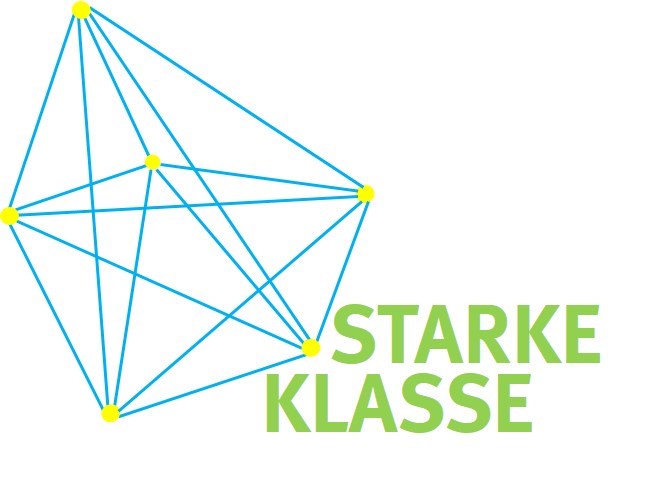April, 2019:
Stefanie van Ophuysen and Sophie Michalke participated the American Educational Research Association Annual Meeting in Toronto. The conference took place from 05th until 09th April. They presented the following posters:
Cohesion In Primary School Classes – Comparison of Sociometric and Psychometric Measures
February, 2019:
We presented parts of our results at another conference in Cologne: Meeting of the Association of Empirical Education Science (German: Gesellschaft für Empirische Bildungsforschung, short "GEBF"). Stefanie van Ophuysen organized a interesting symposium on "Group structures and social relations in inclusive school classes - Results from social network analysis" and Sophie Michalke presented on the topic "More Diversity = Less Cohesion? Relation of Heterogeneity and Cohesion in Inclusive Primary School Classes".
Together with Ariana Garrote, we presented on another topic adressing a commonly known effect in social network analysis called "homophily": "Performance-related Homophily In Inclusive Classes: How Similar Are Pupils Who Work And Play Together?"
We enjoyed our new network with other colleagues and we are looking forward on further collaborations.
The presentation language was in German. If you are interested in the results or any further information, please send us an e-Mail.
November, 2018:
We are happy to be invited to the AERA Annual Meeting from 5th-9th April 2019 in Toronto (CAN). There, we present further results of the project.
October, 2018:
Short after the fall holidays, the participating classes got substantial feedback to the project and its effect. In our project, 12 schools with 54 classes and about 1300 students participated. The students reported three times two different questionnaires. The results should give the teachers insights about the relations in their classes from the start and the development during the project. Teachers got the networks for each measure point to acutally "see" reciprocicated relationships in a visualization. With theses networks, they can observe how many reciprocicated relationships are in their class, if there are several seperated subgroups or contrary one whole network. Are there any students who are isolated? What has changed during the school year?
Here is one example of the network dynamic for one project's class.
September, 2018:
Sophie Michalke presented results of the relation between different methodological approaches using the data of the project. Her presentation was titled "Group cohesion in primary school classes. Relation between sociometric and psychometric assessment"
She presented at the Working group of Emprical Educational Research (German: Arbeitsgruppe für Empirische Pädagogische Forschung, short AEPF) in Lüneburg, Germany, September 25th (2018).
Next day, Sina Schürer presented the presentation "More social participation in cohesive classes? First results of the intervention study SoPaKo".
We were glad to get in contact with other colleagues in the field and to get great feedback to our study. We enjoyed the exchange on ideas.
August, 2018:
We currently work onon the feedback oft he result for the participating project schools.
July, 2018:
We are happy to win the second place of the Poster Award at the "International Conference on Inclusion" in Wuppertal (Germany).
Here is our awarded poster: Poster
June 2018:
The third and and last point of data collection took place from 25th June until 06th July 2018. We used psychometric and socioometric questionnaires for the student of second and third grade.
First Presentation of Results at the “International Conference on Inclusion” in Wuppertal
We were pleased to show first project’s results in the context of a poster-presentation at the “International Conference on Conclusion” at 14.07.2018. We are particularly looking forward to the scientific exchange with colleagues from this domain.
Third Measure Point
Currently, we are working at our third and last measure point.
Teacher-Interviews with Group B
We also interviewed teachers of group B. As well, these teachers reported us their experiences with the project, the project’s implementation and the experienced effectiveness of the intervention.
January, 2018
Teacher-Interviews with Group A
To understand properly how the project implementation worked, we interviewed the teachers of group A in January. Especially, we are interested in the project’s implementation (difficulties, barriers and conditions for succeeding) as well as first perceptions of the results.
Second Measure Point
The second data collection took place from 29th- Jan until 21st Feb 2018. This time we used the “ELFE”-test which is a diagnostic tool for comprehensive reading skills. The pupils completed this test in addition to the known questionnaires.
Training of the Teachers of Group B
The teachers of group B got an intensive training in January/February 2018. They are now skilled to implement the training.
September, 2017
First Measure Point
The first data collection took place from 4th - 15th September 2017.The pupils completed a standardized mathematic test (DEMAT 1+ for the second graders and DEMAT 2 for third grade) together with questionnaires that asked for social-emotional variables (school joy, self-perceived social participation, cohesion) and sociometric data. The teachers completed for every child the Strength & Difficulties Questionnaire (Goodman, 1997).
July, 2017
Training for Teachers of Group A
In July, the teachers got an intensive training for the project. Therefore, they received information by Sina Schürer about theoretical backgrounds and the concrete program of the project. The teachers embraced the further trainings. Now we are looking forward for the project’s implementation.
Last preparations
Currently, we are working on the completion of our materials. We prepared materials for teachers’ training and the intervention.


